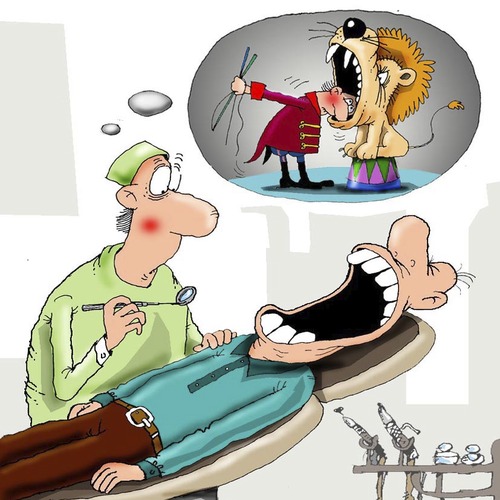EFFECTS OF THE DRINKABLE FORM OF
ALCOHOL TO SOCIAL RELATIONSHIPS
A Research Paper Presented to
Mr. Dustin Celestino of The English
Resource Center
Asia Pacific College
Magallanes, Makati
In Partial Fulfillment
of the Requirements for the Course
RESWRIT-Research Writing
Gabriel Joseph S. Gamboa
October 2012
Chapter 1
INTRODUCTION
A. Background of the Study
Alcohol has a great impact on a person's behavior. Studies
shows that the main reasons of drinking are parties, family
celebration, the holidays, sporting event, an after work meeting with
friends or co-workers or even having a favorite beverage to join a meal.
Drinking alcohol is "generally" associated with a personal
gatherings. Drinking isn't necessary for such circumstances, but they make the
occasion a celebration while not being used to as a crutch.
A liquid that is taken orally, alcohol is often
taken in large quantities. Surveys shows that adolescent and
young adult drinkers indicate that they are particularly likely to drink
heavily with the intention of getting drunk - often every time people drink.Teenagers who abuse alcohol increase their risk of negative health effects because their organs, brain and mental capabilities are still growing. (http://www.casapalmera.com/articles/the-effects-of-alcohol-abuse-on-teens/)
Our
brain can detect alcohol intake, it alarms us every time the alcohol level in
our body reaches a certain level. James Madeiros said in his article
entitled “Why Drinking Can Make You Throw
Up” that there is a “vomiting center” of the brain; that’s right, a whole
place dedicated to letting you know in quick order when it’s time to get rid of
whatever has gotten into your body, or whatever you've been putting into your
body. This area of the brain can be triggered by signals coming from the
stomach, intestines, bloodstream, balancing systems (ears) or the brain itself. (http://thehealthydrinker.com/)
By
the time a person starts drinking, alcohol will start affecting not
just his body but also his mind. After one or two drinks the person can
eventually feel better, confidence will improve and he will become more
sociable but drinking too much will make walking and talking become much harder
for him. People might also start to say things which they don’t mean and start
behaving wild. Some of alcohol’s effects may disappear overnight but others can
stay with the mind of your friends, and become permanent.
Social
Acceptance is being transparent, authentic, friendly, talking about
them more than us however, it is more than that. What makes people socially
accepted is being seen by others and being seen means being open to public.Being
open is not just about showing up, it is about self-acceptance of our
imperfections and allowing people to see them. Acceptance of our
imperfections and embracing them makes us vulnerable.
One
rejection can make people lose their self-confidence and has the tendency to
shut down. Losing self-confidence tells people that we're not yet prepared to
accept our imperfections that lead us to hide them. We
always find a way to hide the shame which creates the feeling of being rejected
by finding people to help us overcome the blame. Sometimes, we are unable
to admit to it because the shame becomes too overwhelming.
There are lots of effects in our body that can be caused by alcohol. Many people
think heavy drinking causes promiscuity, violence and anti-social behaviour.
That's not necessarily true, argues Kate Fox .
Since there have already been researches done about the negative effects of alcohol, this study will focus on the effects of alcohol on a person’s personal life specifically the person’s social relationship.
B Statement of the Problem
This
study aims to answer this question:
1. What are the
effects of alcohol in social relationship?
C. Significance of Study
Drinkers.
This paper would help people who consume
alcohol to understand the bad sides of drinking alcohol. It would also aware
them about the health risk that they might suffer if they will continue
drinking alcohol.
Non-drinkers. For those people who does not drink alcoholic beverages. This
paper will encourage them to stay as a non-drinker and make them understand the
advantage of those people who does not drink.
Students and young ones.
Almost 80 percent of high school students
report drinking alcohol and over 40 percent of students report trying alcohol
by the eighth grade. This would help them to understand that drinking should be
done at the age of 18. At that age they will be responsible enough to make
decisions by themselves such as choosing to drink or not to drink.
Self-Confessed Alcoholic.
For those people who have problems with alcohol, and is generally used to mean compulsive and uncontrolled consumption of alcoholic
beverages, usually to the detriment of the
drinker's health, personal relationships, and social standing.
D. Scope and Delimitation.
This study will focus on the effects of alcohol
on a person’s personal life specifically the person’s social relationship.
This study will no longer focus too much on the
effects of alcohol in our internal organs due to time constraints. Also because
there are already lots of researches done about the bad effects of alcohol in
our body.
E. Materials and Methods.
This study will use research since the
researcher aims to know more about the effects of alcohol on social
relationships.
Information relevant to the study was
gathered from various reference materials such as web sites and on-line journal
articles.
F. Definition of Term.
Alcohol - A drink containing ethanol,
commonly known as alcohol. Alcoholic beverages are divided into three general
classes: beers, wines,
and spirits. These are legally
consumed in most countries, and over 100 countries have laws regulating their
production, sale, and consumption.
Alcoholism - A broad
term for problems with alcohol, and is generally
used to mean compulsive and
uncontrolled consumption of alcoholic beverages,
usually to the detriment of the drinker's health, personal relationships, and
social standing.
Drinker – A person who consumes drinkable
form of alcohol regularly, usually during parties,
family celebration, the holidays, sporting event, an after work
meeting with friends or co-workers or even having a favorite beverage to join a
meal.
Ethanol. – The drinkable form of
alcohol, also known as Ethyl
Alcohol. Ethanol is an addictive, powerful, central nervous
system depressant produced by the action of yeast cells on carbohydrates in
fruits and grains.








